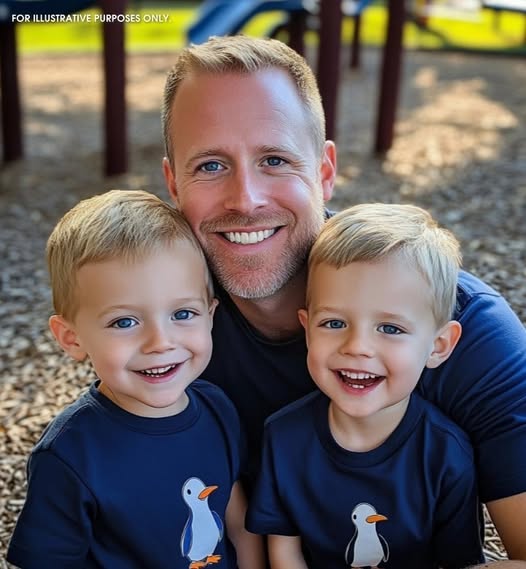Two years ago, when life hit rock bottom, my wife walked out on me and our children.
With nothing but a single bag in hand and the cold air around her, Anna stormed out of our apartment, saying, “I can’t do this anymore.”
I was left standing there, stunned, with our four-year-old twins, Max and Lily.
In one moment, we were a family. The next, I was alone—with two small kids and a mountain of bills.
At the time, I was working as a software engineer for a tech company that had promised big profits. But shady dealings came to light, and before anyone could react, the company collapsed. Overnight, I went from earning a six-figure salary to collecting unemployment checks.
I’ll never forget the day I broke the news to Anna. I saw the sorrow in her eyes. She worked in marketing and had always been one of the kindest people I knew. I never imagined she’d walk away when things got tough.
I began working delivery jobs for grocery stores during the day and driving for ride-share apps at night. All while taking care of Max and Lily, who were heartbroken and kept asking where their mom had gone.
Thankfully, my parents lived nearby. They helped me with the twins at night and whenever they could—but they didn’t have money to offer.
And yet, Max and Lily saved me. At the end of the hardest days, they’d wrap their little arms around me and whisper, “We love you, Daddy.”
Those moments kept me going. I had made them a promise, and I wasn’t going to break it.
I’m grateful that things looked very different by the second year after Anna left.
I landed a freelance coding gig, and my client was so pleased with my work that he brought me on full-time to work remotely for his defense company.
The salary wasn’t massive, but it was consistent. We moved to a warmer area, and I started taking better care of myself again. I began exercising, cooking healthy meals, and organizing a stable routine for the kids.
And then, exactly two years after she left, I saw Anna again.
I was catching up on work in a café near our new home while Max and Lily were at preschool.
She was sitting alone in a corner booth, eyes shut, tears quietly streaming down her cheeks.
She looked worn down. Her hair was lifeless, her coat faded, and dark circles beneath her eyes showed she hadn’t had decent sleep in a long time.
What had happened to her? Why was she crying alone in a coffee shop?
It wasn’t my concern—not anymore. I should’ve just finished my drink and left.
But no matter what she had done, she was still the mother of my children.
When her eyes met mine, I saw her expression shift—from surprise to shame.
I walked toward the woman who had once broken our home. I left my coffee and laptop on the table.
“You left us,” I said. “You didn’t hesitate. And now, after two years, I find you crying in a café. What’s going on?”
She shook her head slowly. “I don’t even know why I left. It was wrong—completely wrong.”
She sighed. “I lost my job not long after. I lived off savings for a bit. My parents sent money for a while, but that stopped. The friends I thought would support me? They disappeared when I needed them most.”
Her voice cracked. “I miss you,” she said. “I want to come back.”
She reached across the table, placing her hand over mine. “David, please. I know I don’t deserve it, but I’ll do anything to make it right. I’ve been bouncing between temp jobs, living in cheap apartments. I’ve had nothing but time to think. And now I know what I gave up.”
I slowly pulled my hand away. “Did you even think about Max and Lily?” I asked. “Not once in two years. And even now—you haven’t mentioned them once since I sat down.”
A wave of anger and disgust rolled over me as I thought back to everything.
“Please, David,” she begged. “Just give me a chance.”
I stood, my back turned to her. “No.”
Without another word, I walked back to my table, gathered my laptop, and left.
